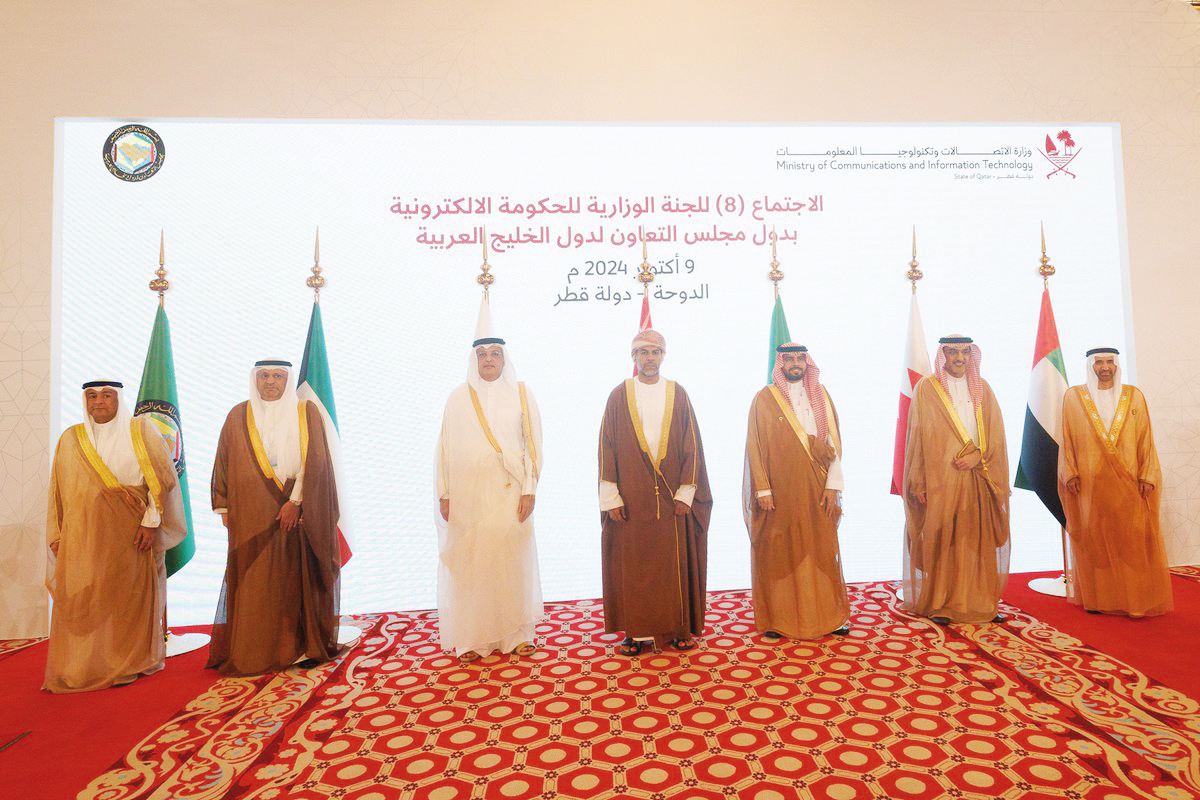The State of Qatar recently hosted the 8th meeting of the Ministerial Committee for e-Government and the 28th meeting of the Ministerial Committee for Post and Telecommunications of the GCC countries. The meeting was attended by Ministers of Communications, Information Technology, and Postal Services of the GCC countries, along with Secretary-General of the GCC H E Jasem Mohamed Albudaiwi. Minister of Communications and Information Technology H E Mohammed bin Ali Al Mannai emphasized the importance of cooperation between GCC countries in the fields of communications and information technology, highlighting the impact of these efforts in achieving shared goals.
In his opening speech, Minister Al Mannai spoke about the significance of the friendly ties between GCC countries and the commitment to enhancing integration and unifying efforts in the postal and communications sectors. He expressed confidence that the meeting would strengthen cooperation among GCC countries and contribute to building a prosperous and secure digital society. The Minister emphasized the importance of establishing a strong and advanced technology sector to create job opportunities, increase investments, and adopt innovative business models.
Secretary-General of the GCC Jasem Mohamed Albudaiwi underscored the importance of the topics discussed at the meetings, which will shape the future phase of cooperation among member states in digital governance. The GCC Ministerial Committee for E-Government launched the GCC e-Government Guiding Strategy (2024-2030) and discussed the Internet Governance Forum. Albudaiwi praised the Committee’s efforts in achieving a complete digital transformation in the government sector through global best practices, leading to high rankings in global digital governance.
The Ministerial Committee for Post and Telecommunications also made significant progress in various areas, including space cooperation, reducing roaming charges among GCC countries, and launching the Gulf research award on technology foresight and digital economy. The committee discussed the e-Government Strategic Framework 2024-2030 and reviewed the minutes of committees and teams affiliated with the GCC e-Government Executive Committee. This included the Joint Electronic Services Working Group, Unified Software and Hardware Purchase Working Group, Artificial Intelligence and Emerging Technologies Working Group, and Digital Trust Services Working Group.
Overall, the meetings highlighted the commitment of GCC countries to enhancing cooperation in the fields of communications, information technology, and postal services. The discussions and initiatives undertaken during the meetings aim to strengthen integration, promote digital transformation, and improve the efficiency and effectiveness of government services. The focus on advancing technology sectors, adopting innovative practices, and building prosperous digital societies reflects the shared vision of member states to harness the power of technology for economic development and competitiveness at regional and international levels.











